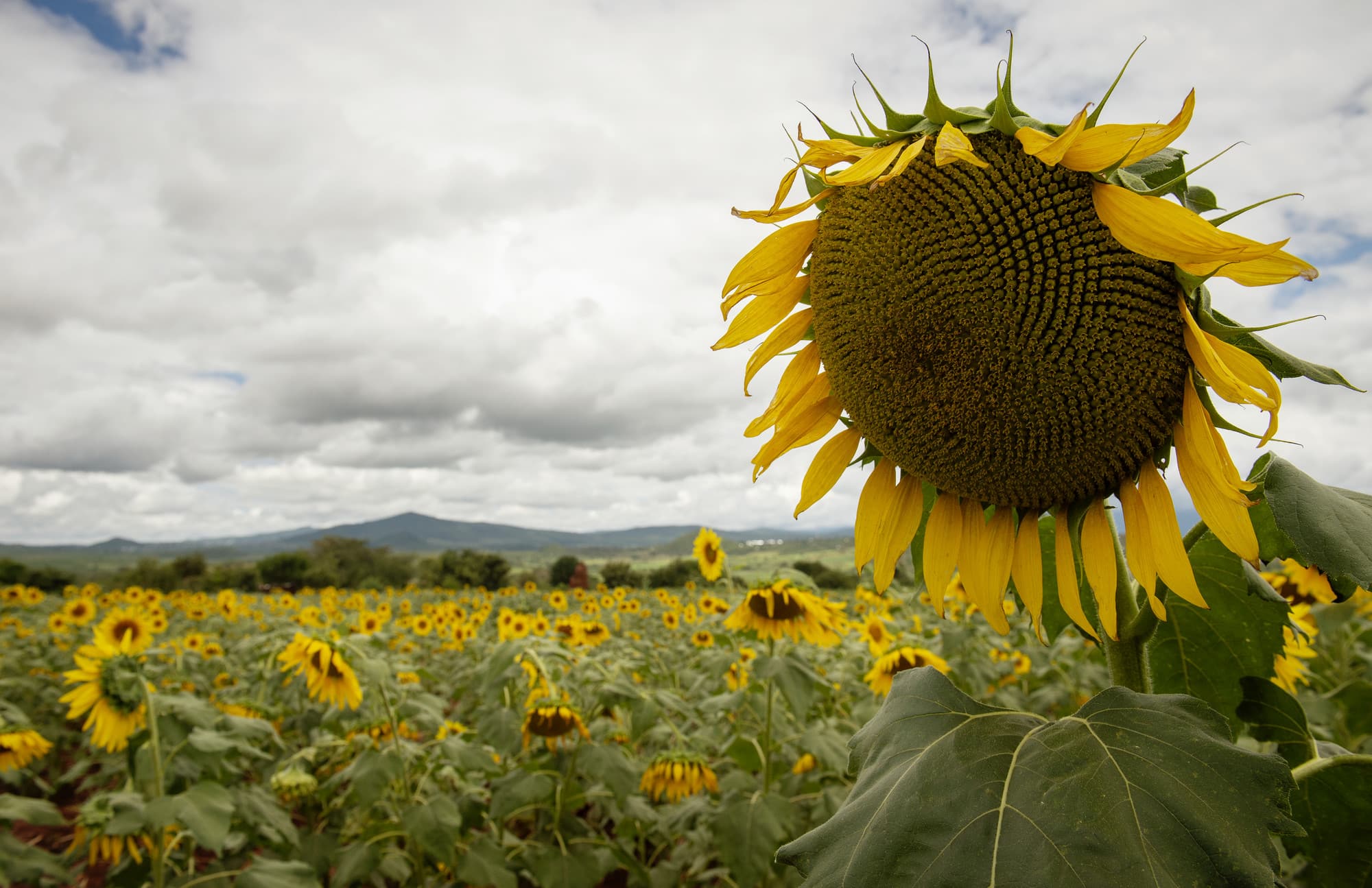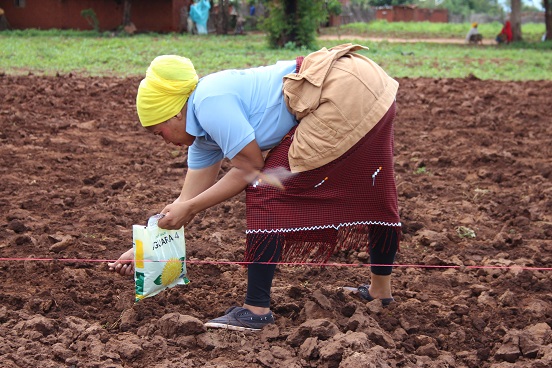News
Tanzania
23 August 2022
Increasing access to sunflower seed in Tanzania

Increasing the availability of improved and hybrid seed varieties is essential to growing sunflower yields among smallholder farmers in Tanzania, a new report published by Farm Africa has shown.
In Tanzania, around 6% of the land that is under agricultural production is being used for sunflower production. Sunflowers are mostly produced by one million smallholder farmers in 19 out of the total 30 regions of Tanzania, but production is mainly concentrated in the Central Corridor and the Southern Highlands.
The demand for sunflower products is growing in Tanzania, mainly to meet a growing domestic market for cooking oil.
However, most smallholder farmers struggle to meet this growing demand.
There are several systemic constraints that prevent smallholder farmers from achieving their productive potential. These include:
- limited access to loans for investment;
- lacking adequate supplies of improved seed;
- working in unstructured and unregulated market systems;
- not receiving proper business development services support;
- agro-dealers being largely based in towns and peri-urban areas;
- inadequate supply of seed during planting seasons.
These challenges have been aggravated by the war in Ukraine. Russia and Ukraine have been the leading producers and suppliers of sunflower products globally in recent years, but farmers have seen supply chain disruptions and an increase in fertiliser price due to the conflict.

The new report, published by Farm Africa’s Tanzanian team, offers an overview of these challenges and puts forwards solutions to help smallholder farmers increase the size and quality of their sunflower yields.
Specific interventions recommended in the report include:
- Increasing the availability and access to improved seed varieties by smallholder farmers, especially hybrid seed varieties from private seed systems, which are highly productive.
- Investing in the use of cleaned record seed through local quality declared seed (QDS) production. Current initiatives by the Tanzanian government through agricultural research institutions to clean parent stock of record seed for farmers can support such efforts.
- Stimulating the stock of improved sunflower seed varieties to increase retail and bulk selling by local stockists and agro-dealers. This can be achieved by fostering partnerships between farmers, farmer organisations (FOs) and Agricultural Marketing Cooperatives (AMCOS), as well as using farmers’ business cases to influence local agro-dealers to stock the seeds and engage in business relationships with local farmers and their respective FO to increase access and availability of seed.
Additionally, due to supply disruptions caused by the conflict, Tanzania can begin to tap into regional markets that heavily depend on sunflower oil imports from Ukraine, namely Kenya and Ethiopia.
For full details, read the newly published Tanzania Sunflower Market Assessment report, written by Tumaini Elibariki, Programme Manager for Farm Africa in Tanzania.
You can read more about Farm Africa’s work empowering female sunflower growers here.




